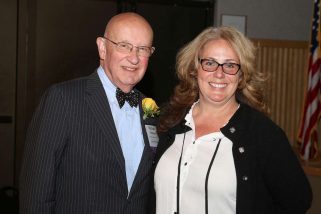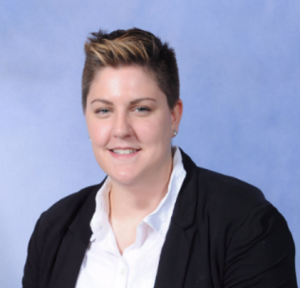On April 19, Excelsior College will host its 10th annual Partners in Lifelong Learning event and recognize Michael and Margery Whiteman and the Center for Disability Services for their commitment to community involvement, volunteerism, and lifelong learning.
The annual Excelsior fundraising event, held each April, draws attention to the importance of lifelong learning while funding scholarships for working adult students in need of financial support to complete their degrees. Since its inception in 2008, Partners in Lifelong Learning has raised more than $750,000, benefiting nearly 500 students from the Capital Region and surrounding areas, and has recognized the achievements of 48 individuals and organizations.
“The annual Partners in Lifelong Learning celebration is the College’s signature event that combines the celebration of student achievement and a commitment to lifelong learning,” said Dr. Keith Barrows, Vice President for Institutional Advancement. “Through this event, our generous sponsors and donors have made a college degree financially achievable for hundreds of adult students at Excelsior. We’re grateful for the tremendous support of our alumni, friends, and event sponsors.”
For 75 years, the Center for Disability Services has been the place where people get better at life. The nonprofit organization is dedicated to enabling and empowering people, primarily those with disabilities, through education, support services, and resources needed to lead healthy and enriched lives. The Kevin G. Langan School offers primary and secondary educational services to children and young adults with multiple disabilities, chronic medical conditions, autism, and brain injury, and after school programs for children and teens. The Center and its divisions, the Down Syndrome Aim High Resource Center, Life Quality Solutions Incubator, Prospect Center and St. Margaret’s Center offer primary medical and specialty medical care, dental care, therapy services, skilled nursing, family programs, wellness, transportation, service coordination, residential and career training, and employment.
 Michael and Margery Whiteman have been active members of the Capital Region community for 50 years. Margery Whiteman has served as a volunteer, director, and chair of many local organizations such as Albany Pro Musica, the Robert C. Parker School, Family Planning Associates of New York State, and Upper Hudson Planned Parenthood. Michael Whiteman has served as an officer or director of organizations such as the Albany Institute of History and Art, the Albany Symphony, the Government Law Center at the Albany Law School, the Historic Albany Foundation, Independent Defense Commission, and WMHT Educational Telecommunications.
Michael and Margery Whiteman have been active members of the Capital Region community for 50 years. Margery Whiteman has served as a volunteer, director, and chair of many local organizations such as Albany Pro Musica, the Robert C. Parker School, Family Planning Associates of New York State, and Upper Hudson Planned Parenthood. Michael Whiteman has served as an officer or director of organizations such as the Albany Institute of History and Art, the Albany Symphony, the Government Law Center at the Albany Law School, the Historic Albany Foundation, Independent Defense Commission, and WMHT Educational Telecommunications.
The Partners in Lifelong Learning Celebration will be held on Wednesday, April 19 at the New York State Museum in Albany, New York. The event will be held from 5 p.m. to 8 p.m. Tickets cost $100, although there are other donation levels offered.
For more information, visit Excelsior’s Partners in Lifelong Learning page or call 888-647-2388 FREE. To learn about past winners of the Partners of Lifelong Learning scholarship, visit Excelsior Life.
###
Excelsior College
Excelsior College is a regionally accredited, nonprofit distance learning institution that focuses on removing obstacles to the educational goals of adult learners. Founded in 1971 and located in Albany, NY, Excelsior is a proven leader in the assessment and validation of student knowledge. It offers more efficient and affordable access to degree completion through multiple avenues: its own online courses and college-level proficiency examinations, and the acceptance in transfer of credit from other colleges and universities, as well as recognized corporate and military training programs. Excelsior College is accredited by the Middle States Commission on Higher Education.
Center for Disability Services
The Center for Disability Services, known as the place where people get better at life, is one of upstate New York’s largest providers of programs and services for individuals who have disabilities. Many of the innovative programs and vital services the Center offers are not available elsewhere. It has more than 80 locations throughout 15 counties and annually provides programs and resources to more than 12,000 infants, children, adolescents, adults and seniors who have many different disability diagnoses including cerebral palsy, intellectual disabilities, multiple sclerosis, autism spectrum disorders, epilepsy, spina bifida and traumatic brain injury. The Center for Disability Services, a not-for-profit organization, has four divisions: Down Syndrome Aim High Resource Center, Life Quality Solutions Incubator, Prospect Center in Queensbury and St. Margaret’s Center.




